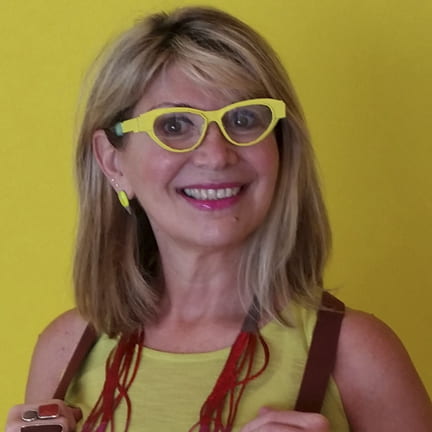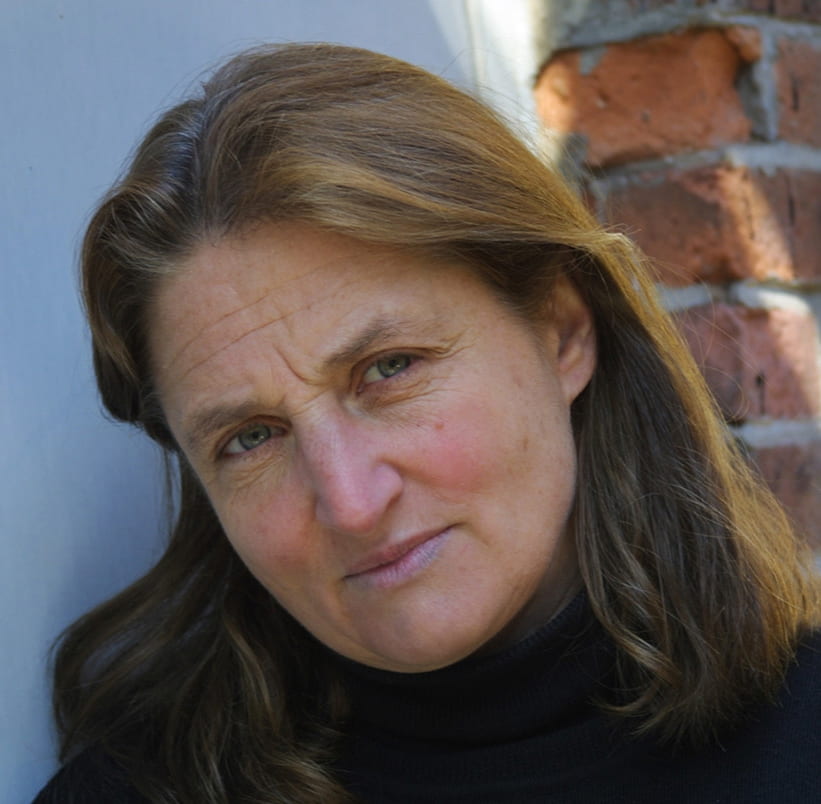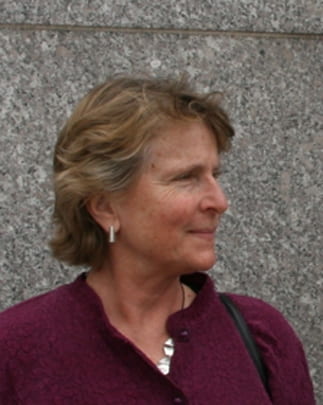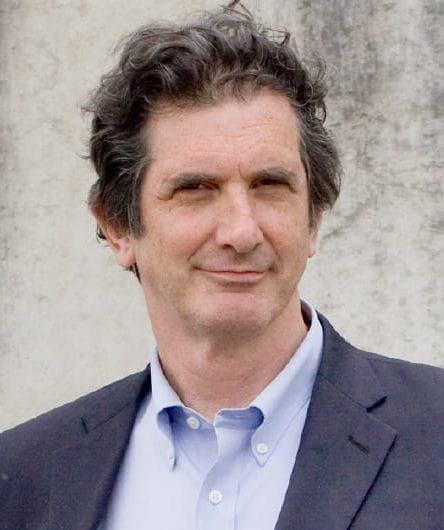The conference was planned to accompany an exhibit at the Hood Museum of Art on “School Photos and Their Afterlives” (January 6- March, 2020). Several of the artists whose work was part of the Hood exhibit will present at the conference.

Kimberly Juanita Brown
My research and teaching gather at the intersection of African American/African diaspora literature and visual culture studies. In particular, I am interested in the relationship between visuality and black subjectivity. My first book, The Repeating Body: Slavery’s Visual Resonance in the Contemporary (Duke University Press, 2015) examines slavery’s profound ocular construction and the presence and absence of seeing in relation to the plantation space. I am currently at work on my second book, tentatively titled “Mortevivum: Photography and the Politics of the Visual.” This project examines images of the dead in the New York Times in 1994 from four overlapping geographies: South Africa, Rwanda, Sudan and Haiti. “Mortevivum” explores the relationship between photography and histories of antiblackness on the cusp of the twenty-first century.

Brenda Child
Brenda J. Child (Red Lake Ojibwe) is Northrop Professor and former Chair of the Department of American Studies at the University of Minnesota. She is the author of several award winning books including Boarding School Seasons: American Indian Families, 1900-1940 (Nebraska, 1998); Holding Our World Together: Ojibwe Women and the Survival of Community (Penguin, 2012); and My Grandfather’s Knocking Sticks: Ojibwe Family Life and Labor on the Reservation (MHS Press, 2014). Her scholarship focuses on gender, labor, and family life in the Great Lakes and the history of Indigenous education.

Mary Coffey
Mary K. Coffey is an Associate Professor of Art History and the Chair of the Latin American, Latino, and Caribbean Studies Program at Dartmouth. She writes about Mexican muralism and the politics of museum exhibition. Her most recent book, Orozco’s American Epic: Myth, History, and the Melancholy of Race (Duke 2020) is the first full length monograph on José Clemente Orozco’s mural at Dartmouth College.

Marianne Hirsch
Marianne Hirsch’s work on photography focused on family pictures in Family Frames: Photography, Narrative and Postmemory (1997) and the edited The Familial Gaze (1998); on family photos and street photos in The Generation of Postmemory: Writing and Visual Culture After the Holocaust (2012) and Ghosts of Home: The Afterlife of Czernowitz in Jewish Memory (2010), co-authored with Leo Spitzer; and on class pictures in her latest book, also co-authored with Spitzer, School Photos in Liquid Time. Together Hirsch and Spitzer curated “School Photos and Their Afterlives” at the Hood Museum of Art in 2020. Hirsch teaches Comparative Literature and Gender Studies at Columbia University.

Gil Hochberg
Gil Hochberg is Ransford Professor of Hebrew and Comparative Literature, and Middle East Studies at Columbia University. Her research focuses on the intersections among psychoanalysis, postcolonial theory, nationalism, gender and sexuality. Her first book, In Spite of Partition: Jews, Arabs, and the Limits of Gil Hochberg is Ransford Professor of Hebrew and Comparative Literature, and Middle East Studies at Columbia University and Chair of the department of Middle East, South Asian and African Studies (MESAAS).
She has published numerous essays on a wide range of issues including: Antisemiatism and Islamophobia in Europe, Francophone North African literature and cinema, Palestinian literature, art and film, Hebrew Literature, Photography and Memory. She is the editor of a special GLQ voume of Queer Studies and The Question of Palestine (2010). Her autored books include: In Spite of Partition: Jews, Arabs, and the Limits of Separatist Imagination (Princeton University Press, 2007), Visual Occupations: Vision and Visibility in a Conflict Zone (Duke University Press, 2015), and Becoming Palestine: Toward an Archival Imagination of the Future (Duke University Press, 2021).

Mirta Kupferminc
Mirta Kupferminc is a multidisciplinary multi-media artist working in Buenos Aires. She is also Founding Director of LABA-BA, a workshop/laboratory for Jewish Arts and Culture. Exhibiting since 1977, she has had more than 100 solo and group shows. Her many local and international awards include the Great Honor Prize (2012) in Argentina, a Silver Medal at the Taiwan Biennale (2006), Honorable Mention Taipei Biennale (1999), and the Third Prize at 7th Koichi Biennale (2008).

Angeles Maria Donoso Macaya
Ángeles Donoso Macaya is an immigrant scholar and community organizer from Santiago, Chile, based in New York City. She is Associate Professor at the Borough of Manhattan Community College/CUNY. Her research centers on Latin American photography theory and history, counter-archival production, human rights activism, documentary film, and feminisms, with a focus on the Southern Cone. She is the author of The Insubordination of Photography: Documentary Practices under Chile’s Dictatorship (2020) and co-editor of Latina/os of the East Coast: A Critical Reader (2015).

Susan Meiselas
Susan Meiselas is a documentary photographer who works in New York. She is the author of Carnival Strippers (1976), Nicaragua (1981), Kurdistan: In the Shadow of History (1997), Pandora’s Box (2001), Encounters with the Dani (2003), Prince Street Girls (2016) and A Room Of Their Own (2017). Meiselas is well known for her documentation of human rights issues in Latin America. Her many awards include a MacArthur Fellowship, a Guggenheim Fellowship, as well as the Deutsche Börse Photography Foundation Prize and the first Women in Motion Award from Kering and the Rencontres d’Arles. Mediations, a survey exhibition of her work was recently exhibited at the Fundació Antoni Tàpies, Jeu de Paume, San Francisco Museum of Modern Art, and is currently on view at the Instituto Moreira Salles in São Paulo. She has been the President of the Magnum Foundation since 2007.

James Nachtwey
James Nachtwey is an American photojournalist and war photographer. He has been awarded the Overseas Press Club’s Robert Capa Gold Medal five times and two World Press Photo awards. In 2003, Nachtwey was injured in a grenade attack on his convoy while working in Baghdad, from which he made a full recovery. Nachtwey has worked with Time as a contract photographer since 1984. He worked for Black Star (1980-1985), was a member of Magnum Photos (1986-2001) and VII Photo Agency (2001-2011) where he was a founding member.

Lorie Novak
Lorie Novak is an artist and Professor of Photography & Imaging at NYU Tisch School of the Arts. Her photographs, installations, and internet projects explore issues of memory and transmission, the relationship between the intimate and the public, and the shifting cultural meanings of photographs. Novak’s works have been in numerous exhibitions including solo exhibitions at Photoville, Brooklyn, NY; Columbia University, NY; ArtSway, Hampshire, England; The International Center for Photography, NY; Center for Creative Photography, Tucson, AZ; The Museum of Contemporary Art, Chicago; the Houston Center for Photography; Addison Gallery, Andover, MA; and Stanford University Art Museum.

Isin Onol
Isin Önol is a curator and lecturer working predominantly in the USA, Austria and Turkey. She was the director and chief curator of the Elgiz Museum of Contemporary Art, Istanbul from 2006 to 2009. She is the founder and program coordinator of the Nesin Art Village in Sirince Turkey and teaches at Montclair State University. In her curatorial research she focuses on interconnecting archival information with oral histories to create platforms for collective memory that contest official narratives.

Thy Phu
Thy Phu is a Distinguished Professor of Race, Diaspora and Visual Justice at the University of Toronto. She is the author of Picturing Model Citizens: Civility in Asian American Visual Culture and Warring Visions: Photography and Vietnam. She has also co-edited Feeling Photography, Refugee States: Critical Refugee Studies in Canada, and the forthcoming, Cold War Camera. Currently, she serves as co-editor of the open-access peer-reviewed journal, Trans Asia Photography.

Sandra Ramos
University Museum, Washington D.C.; the Atlantic Center for the Arts, Smyrna Beach, Florida; TUB Gallery, Miami; and Accola Griefen, New York. Her work has also been included in group exhibitions at the Bronx Museum of the Arts; the Miami Art Museum; and the Museo Del Palacio de Bellas Artes, Mexico City, among others. Ramos participated in the 2013 Venice Bienniale as well as in the 2012 Havana Biennial. Ramos lives and works in Havana and Miami.

Ivy Schweitzer
Ivy Schweitzer is Professor of English and Women’s, Gender and Sexuality Studies at Dartmouth College. She is the author of The Work of Self-Representation: Lyric Poetry in Colonial New England, and Perfecting Friendship: Politics and Affiliation in Early American Literature and co-editor of Afterlives of Indigenous Archives. She is the editor of The Occom Circle, a digital edition of works by and about Samson Occom, an 18th century Mohegan Indian writer and activist and co-producer of a full-length documentary film It’s Criminal: A Tale of Prison and Privilege, based on the courses she co-teaches in and about jails. In 2018, she blogged weekly abouIvy Schweitzer is Professor of English and Women’s, Gender and Sexuality Studies at Dartmouth College. She is the author of The Work of Self-Representation: Lyric Poetry in Colonial New England, and Perfecting Friendship: Politics and Affiliation in Early American Literature and co-editor of Afterlives of Indigenous Archives. She is the editor of The Occom Circle, a digital edition of works by and about Samson Occom, an 18th century Mohegan Indian writer and activist and co-producer of a full-length documentary film It’s Criminal: A Tale of Prison and Privilege, based on the courses she co-teaches in and about jails. In 2018, she blogged weekly about the year 1862 in the creative life of Emily Dickinson.
I

Jeff Sharlet
Jeff Sharlet is a journalist and bestselling author or editor of seven books. His most recent book, combining image and text, is This Brilliant Darkness: A Book of Strangers. He is the winner of the National Magazine Award for Reporting, the Molly Ivins Prize and the Outspoken Award, among others.

Silvia Spitta
Silvia Spitta is Robert E. Maxwell 1923 Professor of Arts and Sciences and at Dartmouth College and Professor of Spanish and Comparative Literature. Her interests include material and visual culture, contemporary Latin American literature and culture, and US Latino/a writings and border culture. She is the author of Between Two Waters: Narratives of Transculturation in Latin America (1995, 2006) and Misplaced Objects: Collections and Recollections in Europe and America (2009). She is currently working to preserve Andean photography archives and has curated a city-wide exhibition of photographs by the indigenous photographer Martin Chambi in Cuzco (2014), and by Baldomero Alejos in Ayacucho (2019.) Her e-book Out of the Archive and Into the Streets: El Cusco de Martin Chambi (NYC: Hemi Press 2020)/Del archivo a las calles. El Cusco de Martin Chambi. Hemispheric Institute of Performance and Politics (NYC: Hemi Press, 2021).

Leo Spitzer
Leo Spitzer is the K. T. Vernon Professor of History Emeritus and Research Professor at Dartmouth College. He writes about individual and collective responses to colonialism and exclusion, Jewish refugee memory, trauma and transmission. His books include Hotel Bolivia: The Culture of Memory in a Refuge from Nazism (1998), Lives in Between: The Experience of Marginality in a Century of Emancipation(1990), and the co-edited Acts of Memory: Cultural Recall in the Present (1998), as well as Ghosts of Home: The Afterlife of Czernowitz in Jewish Memory (2010) and School Photos in Liquid Time: Reframing Difference (2020), both co-authored with Marianne Hirsch. With Hirsch, he also curated the current exhibit “School Photos and their Afterlives” (Hood Museum of Art, Dartmouth College).

John Stromberg
John R. Stomberg is the Virginia Rice Kelsey 1961 Director of the Hood Museum of Art at Dartmouth College. Before joining Dartmouth in 2016, he served as the Florence Finch Abbott Director of the Mount Holyoke College Art Museum and the Joseph Allen Skinner Museum and held leadership positions at the Williams College Museum of Art and the Boston University Art Gallery. The primary focus of his curatorial work is American art and culture since 1900. Moving between photography, prints, paintings, sculpture, media art, and installation work, his exhibitions have been conceived to broaden our understanding of how art operates in, and often shapes, society. He publishes on modern and contemporary art and issues directly related to museums, education, and academia.

Judith Velez
Judith Velez is an award-winning Peruvian film director, documentarian, and founder of the production company Nomade Films. Her award-winning documentaries have been selected and shown in numerous International Film Festivals, including in Montreal, Guadalajara, Havana, Munich, Verona, and Tokyo. In Jugando Sobrevivir (1991), her first documentary, she traced how the terrorist group, Sendero Luminoso (Shining Path), affected the lives of a group of young people in Lima. In 2011, she directed Operación Victoria: La caída de Sendero Luminoso (Operation Victory: The Fall of Shining Path), which focuses on the capture of Abimael Guzman, the group’s leader, and then, in 1918, again returned to the subject of Peru’s recent decades of turmoil and civil war with Volver a Ver (Seeing Again).

Brian Wallis
Brian Wallis is Curator for the Walther Collection in New York and was formerly Deputy Director and Chief Curator at the International Center of Photography (ICP). The many exhibitions Wallis curated at the ICP include Larry Clark (2005), America and the Tintype (2009), and Weegee: Murder is My Business (2012). He was also involved in the 2007 recovery of the Mexican Suitcase, a long-lost cache of 4,300 negatives made during the Spanish Civil War by Robert Capa, Gerda Taro, and Chim. Recently he co-edited the forthcoming volume “Imagining Everyday Life: Engagements with Vernacular Photography,” and is currently organizing a retrospective exhibition of the photographs of Mary Ellen Mark.

Laura Wexler
Laura Wexler studies the social life of photographs across the intersections of race, class, gender, sexuality and place. She is Professor of American Studies, Film & Media Studies, and Women’s, Gender & Sexuality Studies at Yale University, where she founded and directs The Photographic Memory Workshop. She is a Principal Investigator of the Photogrammar Project, which has received NEH and ACLS support to make a web-based interactive research system for visualizing the more than 170,00 photographs created by the Farm Security Administration and Office of War Information between 1935-1945. She is also the author of Tender Violence: Domestic Visions in an Age of U.S. Imperialism (Kelley Memorial Prize, AHA), coauthor of Pregnant Pictures, coeditor of Interpretation and the Holocaust, and author, as well, of many essays and book chapters. Some of her recent publications are: Wood River, Blue Pool, in collaboration with photographer Jo Ann Walters and writer Emma Kemp; Candy/A Good and Spacious Land, in collaboration with photographers Jim Goldberg and Donovan Wylie and writer Chris Klatell; “What Vishiac Saw: Another Look,” in Roman Vishniac Rediscovered, edited by Maya Benton; “A Notion of Photography,” in A Notion of Family by LaToya Ruby Frazier; and “Introduction” to Hartford Seen, by photographer Pablo Delano.